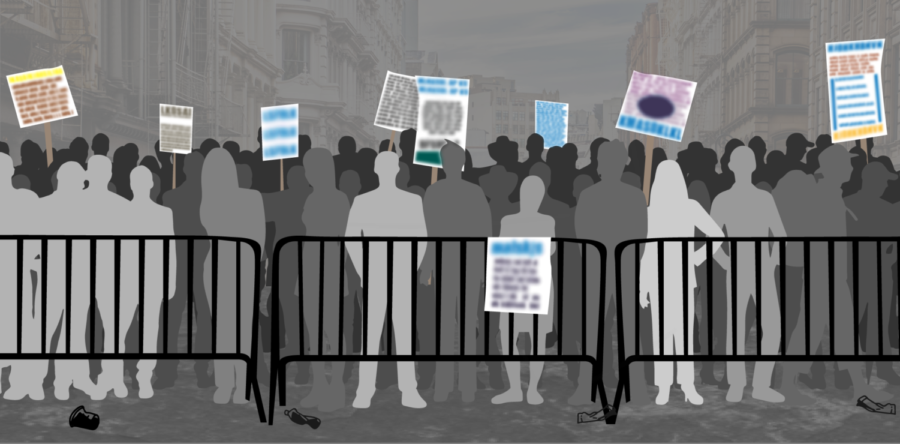Brown: Activist burnout
June 16, 2020
Activism can be as rewarding as it can be mentally and emotionally draining. The work of an activist demands immense selflessness, empathy and compassion in the face of oppression or adversity. While admirable, tapping into these traits can leave a person emotionally exhausted. Over a long period of fatigue, these activists can experience burnout.
Psychologist Sherrie Bourg Carter defines burnout as “a state of chronic stress,” which can cause “physical and emotional exhaustion, cynicism and detachment, and feeling of ineffectiveness and lack of accomplishment.”
Many recent protests focus on civil liberties, social justice and other human rights issues. Research has suggested that these human rights activists can be especially susceptible to burnout. This is because activists put pressure on themselves to have a significant impact on the world around them and set unrealistic standards they are not quite able to meet, which can cause them to be disillusioned and detached from their cause.
Burnout happens slowly, and it is expressed physically and/or mentally. It can cause a multitude of symptoms, including “physical depletion, feelings of helplessness and hopelessness, disillusionment and the development of negative self-concept and negative attitudes towards work, people and life itself.” Other symptoms may include the inability to focus, indecisiveness, insomnia and a general sense of “running on empty.” These symptoms can happen when activists fail to look after themselves.
The best way to cope with chronic stress is the help and support fellow activists. Research has highlighted that activist burnout is often caused by people setting unrealistically high standards that are never met. Activists devote themselves to their campaign, which can cause the most committed participants to detach themselves from the movement if their mental and emotional health is ignored.
The best way to adapt to burnout is to mitigate stress and limit involvement in advocacy. Long-term involvement in emotionally draining and demanding situations is easier to cope with when emotions can be released healthily and consistently. Support networks, co-counseling and exercise can be creative outlets to reduce chronic stress and to avoid burnout. However, taking on more responsibility than normal can stretch activists beyond their mental, emotional and psychological means. Knowing how to delegate stress and other duties will be essential to avoiding burnout.
If those involved in activism want to make a difference, then it is time for them to accept that constant advocacy is neither sustainable nor worthwhile. Burnout can happen to anyone, and activists must take it upon themselves to care for their well-being while also fighting for others to avoid it. Changing the world is a marathon, not a sprint.







